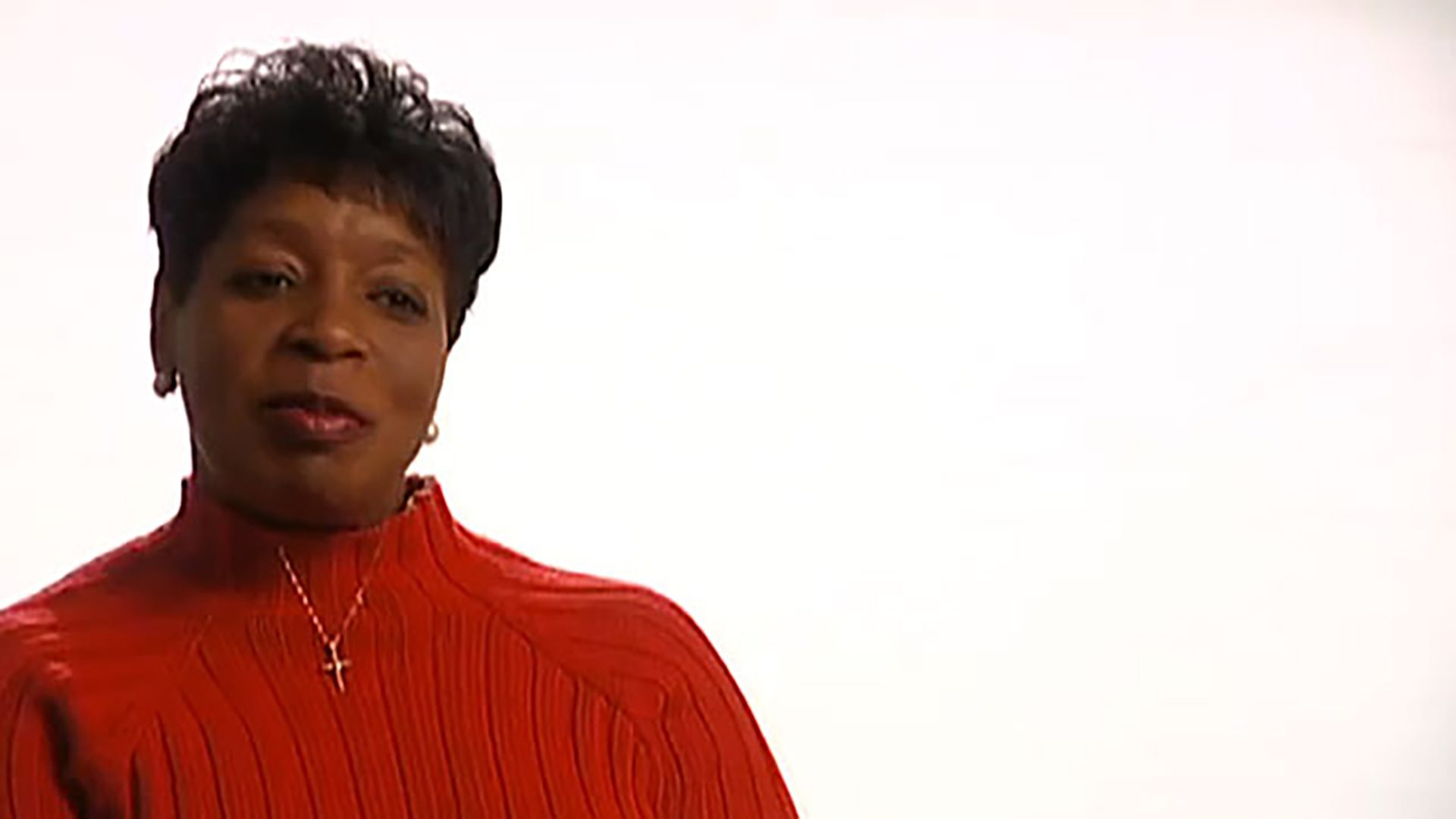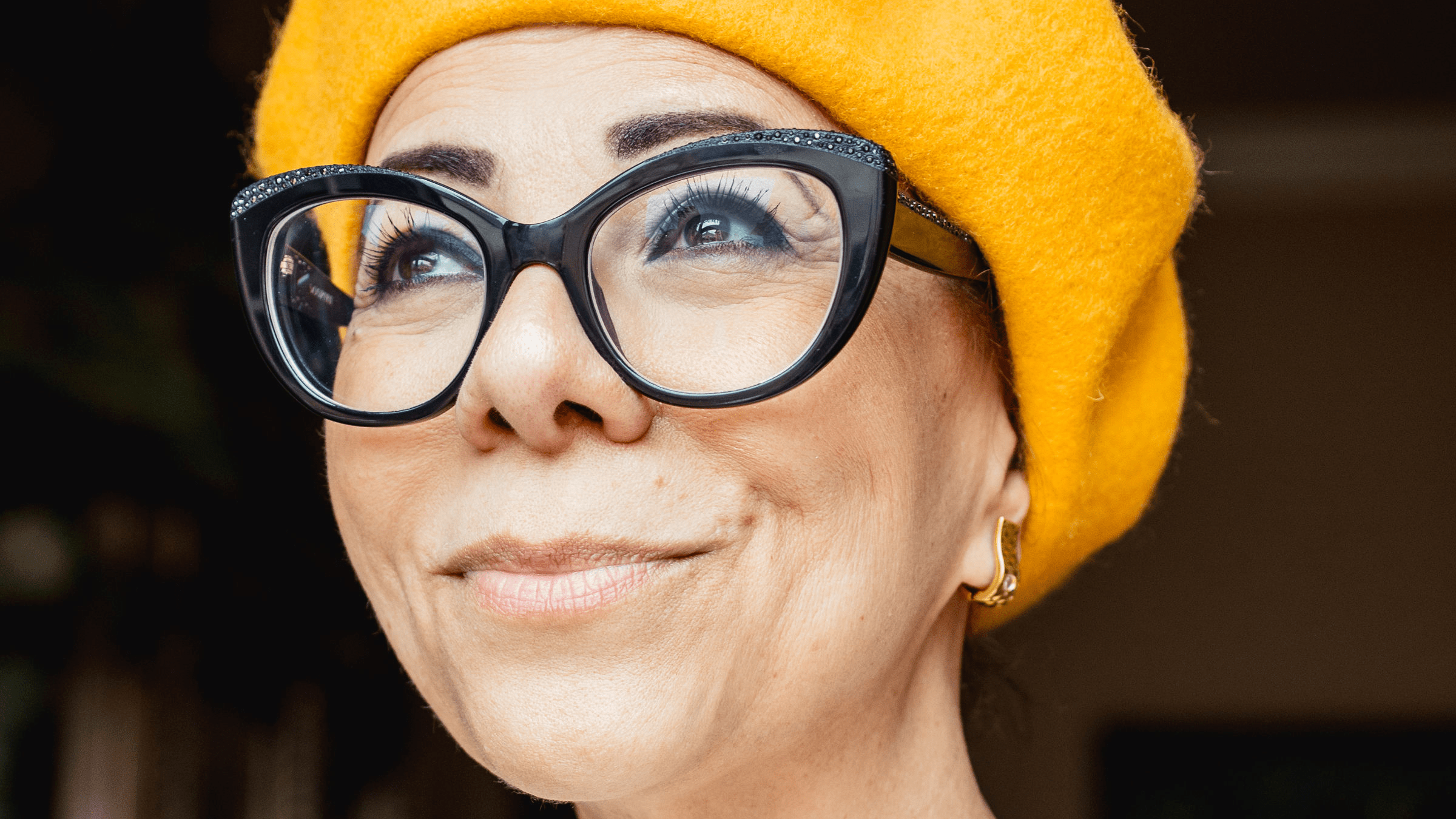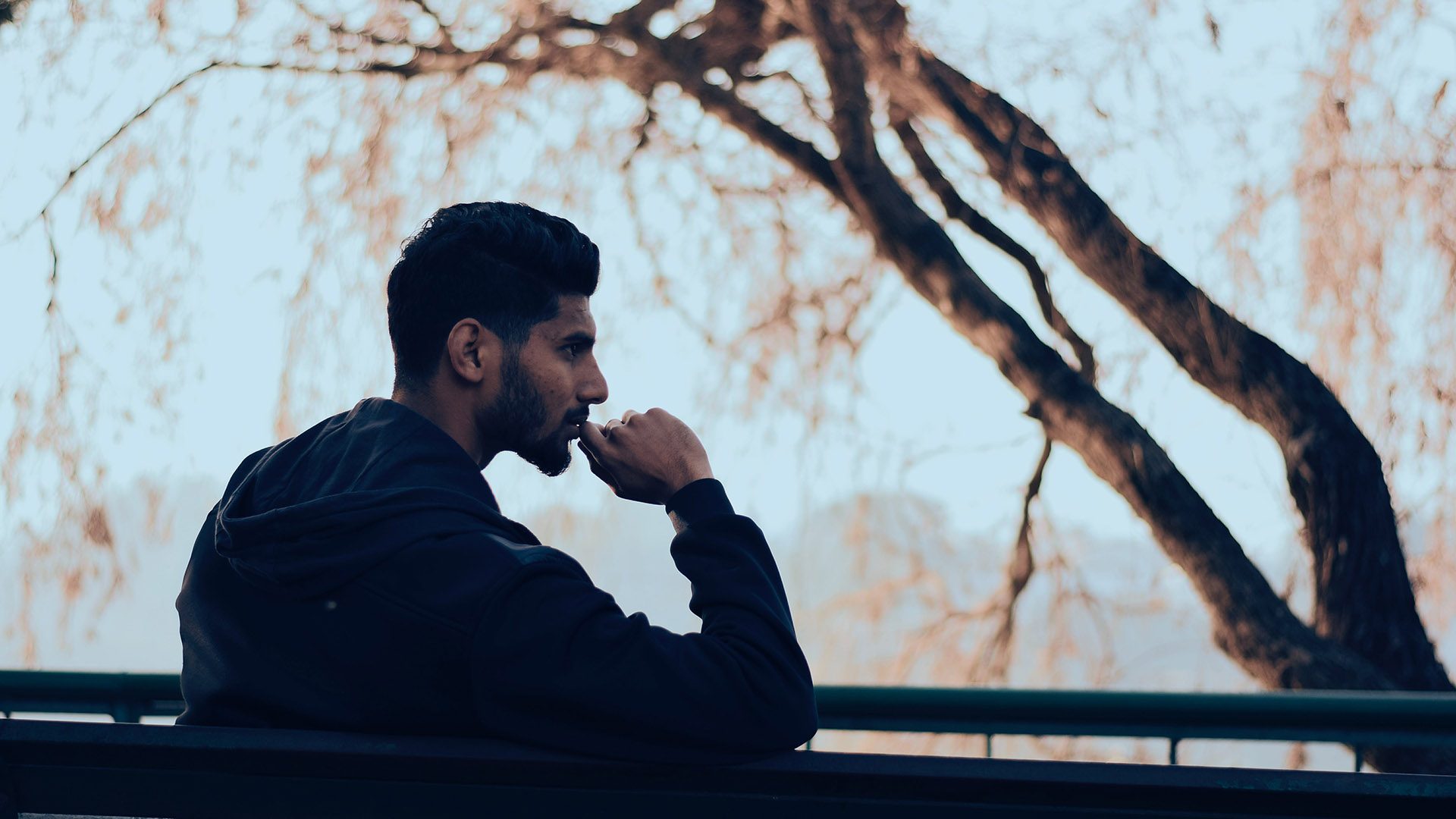Survivor Interview – Jacqueline M.
Breast cancer survivor Jacqueline discusses her mastectomy followed by reconstructive surgery, returning to work after treatment and meeting other survivors.

It was inductile carcinoma. It was stage zero, so I was one of the lucky ones. I had a lumpectomy. However, I went back into surgery after my doctor said, “I think the best solution is to do a mastectomy. We also want to take some lymph nodes.” I said, “Whatever we need to do, let’s do it.”
When you have a mastectomy, expect to be in pain. They gave me morphine, but because I am not used to taking chemicals at all, when I discovered what they were giving me, I said, “I want this out. I’ll deal with the pain.” It was really bad for about four days. After that, I was getting better and feeling better.
When I was first diagnosed, I didn’t know how I was internalizing the fear. A lot of times I’d fall off to sleep and think I was dying and I’d jump. I had the surgery August 20, and until September 30, I had not slept a complete night without waking up with anxiety. I happened to go on a retreat with my church to this resort. They had spring water that I read was healing water. I didn’t pay any attention to it. But I do know that I bathed in that water and I drank that water all afternoon, and I slept all night long for the first time in almost 40 days. After that, my anxiety was gone.
I was a health nut. I worked out with professional body builders. I was an advocate about keeping healthy, running and everything. So I experienced a lot of negativity from my friends saying, “You don’t smoke. You don’t drink. You’re doing everything right, so how are you the one diagnosed with breast cancer?” For me, that was really detrimental. I was like, “I’m not gonna really question why I have it. I’m gonna just try to deal with it.”
Once I had the mastectomy, I did not feel as good about my body. I thought, “I’m not gonna work out. I’m not gonna run anymore. I’m not sexy anymore. I don’t look as good as I used to.” I would not let the doctor talk me into having reconstructive surgery. I said, “What difference does it make? I can’t do anything to change the fact that I’ve had breast cancer.” I experienced that for probably about a year and a half, feeling sorry for myself, but not telling anybody. To everybody else, I was doing great. I didn’t want them to feel sorry for me. One day, my mom said, “You’re still young. You should go ahead and consider reconstructive surgery.” I decided to do it.
Now, that was nothing like having a mastectomy. I don’t think I’ve ever felt any pain like it. It wasn’t so much pain as it was pressure on my chest. When I woke up, all I was saying is, “I want to go home. I feel fine.” I was fine in the car. But the minute I got home and tried to lay down, I screamed. I felt like I had about five tons on my chest, and I couldn’t breathe. My mother went flying out of the room crying, calling the doctor. All he said was, “I expected her to feel like that. Get her a chair. Put her in it, prop her up, and she’ll sleep like that.” I slept like that for about two weeks. Finally, it subsided where I could lay down.
Having reconstructive surgery was worth it, because my lingerie got to be a little cheaper. I spent like $120 on swimsuits that had a little pocket for my prosthesis. I used to look in the mirror and say, “If I just had a little bump to fill out my regular bra, I wouldn’t have to spend $85 on a special bra.” Once I got that little bump, I was fine. It wasn’t exactly like my breast, but it gave me the form and shape, and I still looked pretty good. I would never show my friends the scar before, but now I started pulling down my sweater, say, “Can you tell which one it was?” No one could tell. So I was really glad I did it. I felt a lot better about myself. I would do it again, even though I had the pain.
The only physical side effects I had were from the reconstructive surgery. Right after the surgery, I couldn’t walk without joint pain. I actually thought, “Maybe the cancer is in my bones.” Nobody could understand what was going on. I used to run five miles before the surgery, but I couldn’t walk without my feet and hip joints hurting and pain up my back. I did a little research, but there was no medical validity to say, “Yes, that could cause fibromyalgia or whatever.”
I found a chiropractor and went four to five days a week for therapy. I would walk in the evenings. I had massage therapy. I also changed the way I was thinking. I said, “Okay, I did not have this pain before, so it is not bone cancer. It has to be the surgery.” One day, about two months after that, it was just gone. To this day, I always have at least three massages a month. I ran a marathon last year.
When I returned to work, it meant that I was getting on with my life. To get back into my routine helped me to move on with my life and not feel like I was stagnated because I was diagnosed with cancer. I did not feel bad if people asked me. People tend to walk around you a little cautious, because they expect you to either feel sorry for yourself or look sick. They actually come up to you and say, “Did you really have cancer? Because you don’t look like it.” I said, “Sure, I had it. I went through everything I had to go through, but I’m here.” It was good for me to get back to work.
I still hesitate about letting somebody know or see. I don’t have anybody special in my life right now, but if I meet a guy, I will tell him. Usually, I don’t have that kind of relationship. Well, I never did anyway. I’ve been very satisfied being celibate unless it was someone special, because I’m divorced. I really believe in my spiritual beliefs when it comes to that, so that didn’t affect me.
God gives us challenges, and we take the challenges. Each thing we experience that we think may be a tragedy, actually becomes a blessing.
One thing that has helped me, emotionally and mentally, in being a survivor is being able to talk to other people about my experience and listen to them about their experience. I’m constantly being called on to talk to someone who has been diagnosed with breast cancer. I’ve been there for a lot of people. I experience their emotion, and I try to be there for them. Hopefully, if something happens to me again, somebody will be there to support me.
I have a dear friend now, who has experienced cancer returning three times, and it’s now in her bones. She’s about 45 years old. Just being there for her, she says, is probably the best thing. She said her husband can’t understand, her family can’t understand. Only another survivor whose experienced breast cancer can really understand what you go through. I feel that’s the reason I’m here.
Last summer, I was asked to come and speak to Hospice of Montgomery County. I came in to do the panel after running 14 miles, training for a marathon. There was a young lady there who had just been diagnosed with breast cancer. She asked me, “When did you know you were a survivor?” I told her, “The minute I knew that I had lived the next day after I was diagnosed, and each day that I live I am a survivor.”
She cried, but she really felt better after I told her my story and after I told her how I felt like surviving was. To give that to her and make her feel better was probably one of the best things I’ve done for myself. Survival for me is every day. She said, “You ran 14 miles today?” I said, “Sure.” She said, “You act like you’ve never had it.” And I said, “Well, I’m a survivor, and I can’t determine what’s going on in my body, but I can’t stop living.” That’s been quite an experience for me to be able to do that.
My name is Jacqueline Matthews, and I am a seven-year breast cancer survivor.

